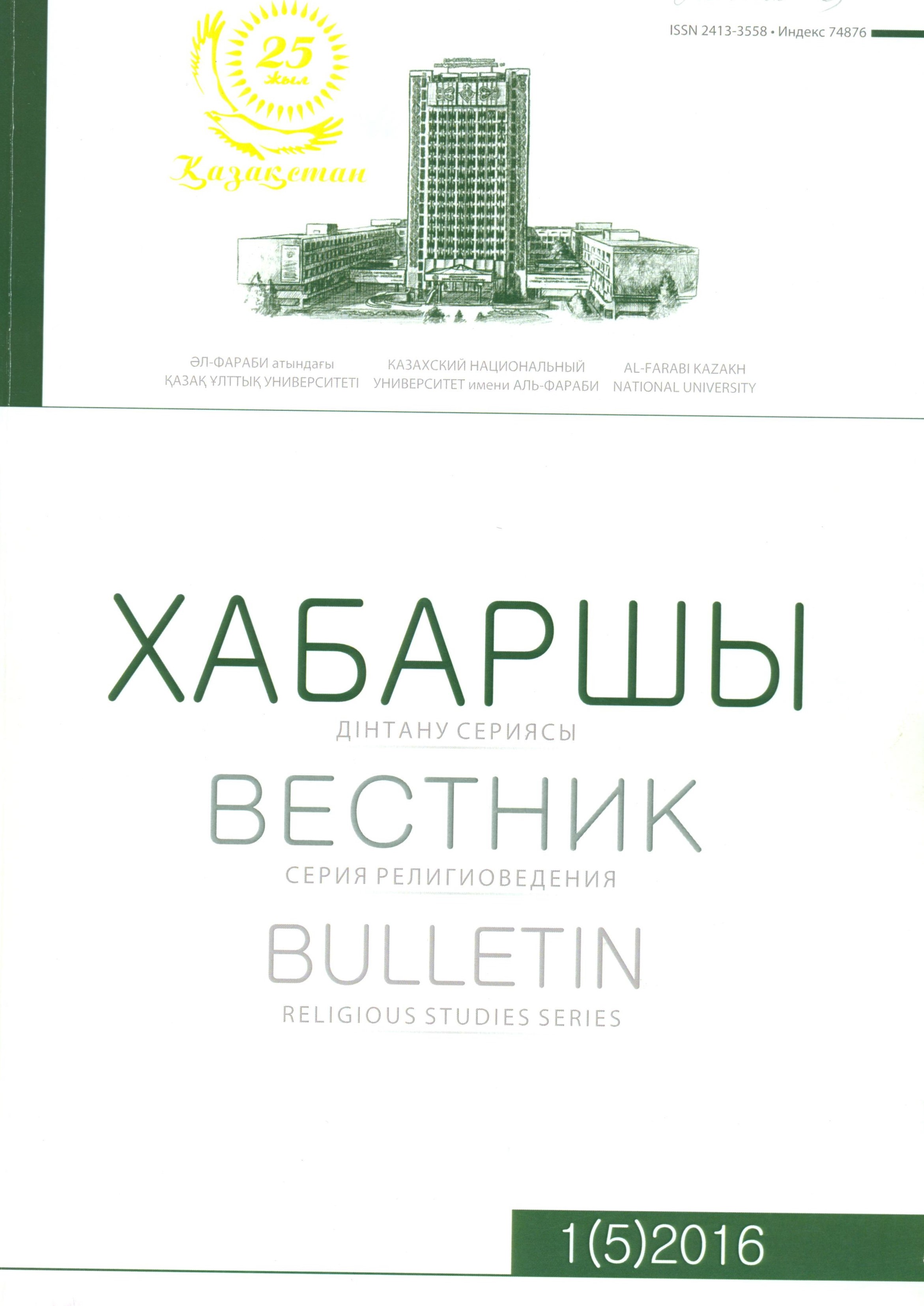Philosophical anthropology as a spiritual transformation: from idealism to rationalism
DOI:
https://doi.org/10.26577/EJRS-2015-1-166Abstract
The paper analyzes the philosophical and social foundations of the religious worldview, cultural and cognitive prerequisites philosophy of religion, disclosedfeatures of the internal mechanisms of historical and spiritual transformation of mankind's transition from idealism to rationalism, naturalism,irrationalism,transcendentalism and refined circumstances affecting the current state of religious trends.The authors note that the study of the principles of the knowledge of the essence of phenomena directly cover the reality of social life. Since religion is a reflection of self-consciousness and internal conditions of man, the universal condition of humanity.Since religion is a reflection of self-consciousness and internal conditions of man, the universal condition of humanity.Historical change of materialistic outlook on idealistic or falling into irrationalism, the search for magical powers - not so much prejudice , misconception, as a way of self-ordering of experiences,attempt to equalize or compensate for their own social vulnerability to the power of many "demons", leading others processes, moral and psychological fatigue and self-defense system of the intrusion into their lives metachelovecheskoy realityand subsequent to this projection, the recognition of some higher power, the control of its destiny and responsibility arrangement on it.
References
2. Красников А.Н. У истоков современного религиоведения //Классики мирового религиоведения. Антология. Т.1 /Пер. с англ., нем., фр. Сост. и общ. ред. А.Н.Красникова. - М., 1996, - c.17–27;
3. Никонов К.И. Философско-антропологические аспекты религиозного плюрализма.
4. Аринин Е.И. Религия вчера, сегодня, завтра. - Архангельск, 1994. - Вып.3, - с. 77.
5. Спиркин А.Г. Мировоззрение //Философский энциклопедический словарь. - М., 1989, - с. 367.
6. Гардинер П. Кьеркегор. Очень краткое введение. - М.: “Астрель”: АСТ, 2008. - 192 с. (“Оксфорд”).
7. Е.И. Аринин. Философия религии. Принципы сущностного анализа. - М.,1988. - c.123.
8. Фейербах Л. Соч. В 2-х т. Т.2. - М: Наука, 1995. - c. 188.
9. Фейербах Л. История философии. Собрание произведений в трех томах. - М.: “Мысль”, 1967, Т.2. - С. 368.
10. Брюнинг.В. Философская антропология//Западная философия: Итоги тысячелетия. Екатеринбург, "Деловая книга", Бішкек, "Одиссей", 1997.
11. Бұл да сонда.













